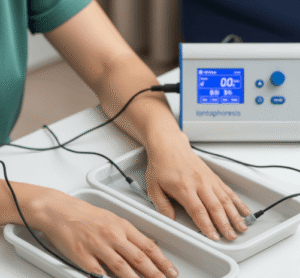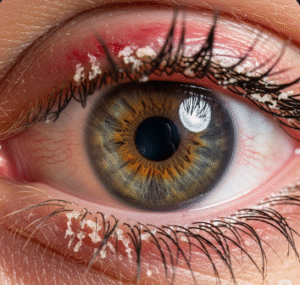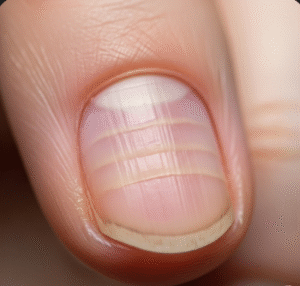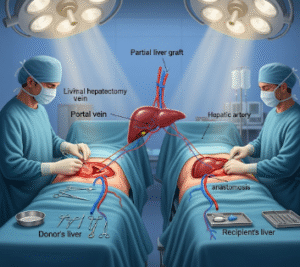Overview
Belching, also known as burping or eructation, is the release of gas from the digestive tract through the mouth. It is a natural process that helps relieve excess air swallowed during eating or drinking. While occasional belching is normal, frequent or excessive belching may indicate underlying digestive issues or other medical conditions.
In South Korea, gastroenterology clinics and general hospitals provide diagnostic evaluation, dietary counseling, and treatment options for patients experiencing problematic belching, ensuring relief and management of underlying causes.
Key Facts
Highlights:
➡️ Belching is a natural mechanism to release swallowed air from the stomach.
➡️ Common triggers include eating or drinking too quickly, carbonated beverages, and chewing gum.
➡️ Excessive belching can be associated with gastrointestinal conditions, such as acid reflux, gastritis, or Helicobacter pylori infection.
➡️ Behavioral factors, like swallowing air (aerophagia), can worsen symptoms.
➡️ South Korea offers specialized gastroenterology services for diagnosis and management of belching-related disorders.
What is Belching?
Belching is the act of expelling gas from the stomach or esophagus through the mouth. It occurs when excess air accumulates in the digestive tract, typically swallowed during eating, drinking, or talking.
Types of belching include:
- Physiological Belching: Normal, occasional release of swallowed air.
- Excessive Belching: Frequent or socially disruptive burping, possibly indicating an underlying condition.
- Aerophagia: Habitual swallowing of air leading to repeated belching.
- Gastroesophageal Belching: Gas released from the stomach due to reflux or other gastrointestinal disorders.
What Symptoms are Related to Belching?
Symptoms associated with belching can vary depending on underlying causes:
- Frequent or loud burping
- Sensation of bloating or fullness
- Mild abdominal discomfort or pressure
- Acidic taste or sour belching (if related to reflux)
- Nausea or mild indigestion
- Heartburn or gastroesophageal discomfort in some cases
- Reduced appetite if symptoms are persistent
Highlights:
➡️ Occasional belching is normal, but persistent or excessive belching may indicate a medical issue.
➡️ Accompanying symptoms like pain, bloating, or nausea require medical evaluation.
What Causes / Possible Causes of Belching?
Highlights:
➡️ Swallowing Air (Aerophagia): Eating too quickly, drinking through straws, chewing gum, or smoking.
➡️ Dietary Triggers: Carbonated beverages, beer, or foods that increase gas production.
➡️ Gastroesophageal Reflux Disease (GERD): Acid reflux can cause frequent belching.
➡️ Gastritis or Peptic Ulcer Disease: Inflammation of the stomach lining may contribute.
➡️ Helicobacter pylori Infection: Can increase gas and belching.
➡️ Hiatal Hernia: Stomach displacement into the chest cavity may promote belching.
➡️ Functional Dyspepsia: Digestive discomfort without structural abnormalities.
➡️ Medication Side Effects: Certain drugs can increase gas or swallowing.
When Should I See My Doctor?
Highlights:
➡️ If belching is persistent or disruptive to daily life.
➡️ If accompanied by pain, heartburn, vomiting, or weight loss.
➡️ For recurrent bloating, nausea, or acid reflux symptoms.
➡️ If belching occurs with difficulty swallowing or black/tarry stools, which may indicate a more serious condition.
➡️ Early consultation allows proper diagnosis and tailored treatment, preventing complications.
Care and Treatment
Management of belching focuses on identifying and treating the underlying cause while alleviating discomfort:
Highlights:
➡️ Dietary Modifications: Avoid carbonated drinks, chewing gum, and excessive air swallowing.
➡️ Eating Habits: Slow eating, smaller meals, and mindful chewing.
➡️ Medical Therapy: Antacids, proton pump inhibitors (PPIs), or H2 blockers if related to acid reflux.
➡️ Treatment for H. pylori: Antibiotics and acid suppression if infection is present.
➡️ Behavioral Therapy: Techniques to reduce air swallowing, manage stress, and prevent aerophagia.
➡️ Probiotics: Support healthy gut flora and reduce gas formation in some cases.
➡️ Monitoring and Follow-Up: Assess effectiveness of interventions and adjust care as needed.
Treatment Options in Korea
South Korea provides comprehensive gastroenterology and digestive care for belching:
Highlights:
➡️ Gastroenterology Clinics: Diagnosis, endoscopy, and treatment of reflux, gastritis, and ulcers.
➡️ Dietary and Nutritional Counseling: Personalized plans to reduce gas and digestive discomfort.
➡️ Advanced Testing: Breath tests for H. pylori, imaging studies, and pH monitoring for reflux.
➡️ Medical Therapy: Prescription medications for acid suppression, anti-gas agents, and infection treatment.
➡️ Behavioral and Lifestyle Programs: Stress management, eating habit modification, and exercise guidance.
➡️ Multidisciplinary Approach: Collaboration between gastroenterologists, dietitians, and behavioral specialists.
➡️ Medical Tourism Support: Multilingual consultations, structured evaluation, and follow-up care for international patients.













